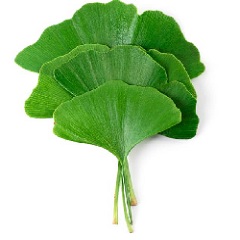
Medicine: FITTOMAN
Use: Oral use of Ginkgo Biloba is used in case of cognitive impairments or to improve quality of life in mild dementia.
Ginkgo is a large tree with fan-shaped leaves. Although Ginkgo is a native plant to China, Japan, and Korea, it has been grown in Europe since around 1730 and in the United States since around 1784. The ginkgo tree is thought to be one of the oldest living trees, dating back to more than 200 million years.
Ginkgo biloba leaf extract contains flavonol and flavone glycosides, lactone derivatives (ginkgolides), bilobalide, ascorbic acid, catechin, iron-based superoxide, 6-hydroxykinuretic acid, protocatechuic acid, shikimic acid, sterols and vanilic acid. The major classes of active ingredients are the ginkgolides and bilobalides (also known as terpenes) and the flavonoids.
Ginkgo leaf is often taken by mouth for memory disorders including Alzheimer's disease. It is also used for conditions that seem to be due to reduced blood flow in the brain, especially in older people. These conditions include memory loss, dizziness, difficulty concentrating, and mood disturbances. Some people use it for leg pain when walking related to poor blood flow (claudication). The list of other uses of ginkgo is very long. This may be because this herb has been around for so long. Ginkgo biloba is one of the longest living tree species in the world. Ginkgo trees can live as long as a thousand years. Using ginkgo for asthma and bronchitis was described in 2600 BCE.
Ginkgo seems to improve blood circulation, which might help the brain, eyes, ears, and legs function better. It may act as an antioxidant to slow down Alzheimer's disease and interfere with changes in the brain that might cause problems with thinking.
Ginkgo seeds contain substances that might kill the bacteria and fungi that cause infections in the body. The seeds also contain a toxin that can cause serious side effects like seizures and loss of consciousness.